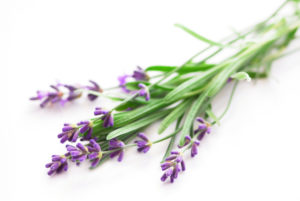The aromatherapy bath induces relaxation and can promote deeper, more restful  sleep. Essential oils in a diffuser do the same, but they can be applied continuously throughout the night as well. The best applications of aromatherapy for better sleep are:
sleep. Essential oils in a diffuser do the same, but they can be applied continuously throughout the night as well. The best applications of aromatherapy for better sleep are:
1) in a warm bath, and
2) dispersed in the air with a diffuser.
Essential Oils for Relaxation and Better Sleep
Probably the best essential oil for sleep is lavender (lavandula angustifolia). Lavender helps you relax and fall asleep, and even better, it works like a charm to put you back to sleep when you wake up in the middle of the night. Lavender promotes a deeper, better sleep too. This is particularly beneficial for those with jet lag and a shorter sleep cycle. But, unfortunately, not everyone likes lavender and it doesn’t work on absolutely everyone. There is a caution for those with low blood pressure too.
Thankfully, there are a number of alternatives. A few are:
- German Chamomile (Matracaria recutita),
- Roman Chamomile (Chamaemelum nobile),
- Marjoram (Origanum marjorana),
- Mandarian (Citrus reticulata),
- Orange (Citrus sinensis), and
- Valerian (Valeriana fauriei).
Frankincense (Boswellia carteri) and Ravensara (Ravensara aromatica) will also help where stress is a primary factor.
Using Essential Oils in the Bath
For the bath, use just 3 or 4 drops (maximum 6 to 8 drops) of good quality essential oil in a carrier (vegetable oil, vegetable glycerin, whole – not fat-free or skim – milk, salt, etc) that will mix well with water and disperse the essential oil. You don’t want the drops to remain separated, float at the surface and potentially irritate your skin. DO NOT put more than the recommended number of drops. More is not better and can irritate the skin.
Diffusing Essential Oils
For the diffuser, use just a few drops as well. A strong scent can be overwhelming, a distraction, and make it hard to sleep. In this case, less can be better. There are different types of diffusers so read the instructions on how to operate them and do not leave candle diffusers burning as they can be a fire hazard. A few (2 or 3) drops on the diffuser pad, in the receptacle, or in water in the diffuser dish should be enough. Remember, a little goes a long, long way. And, if it’s too strong to the point of bothering you, it’s too distracting, annoying, and not doesn’t help you relax.
Inhaling Essential Oils
Some people put a few drops of essential oils on a tissue and inhale the scent with a few deep breaths. Convenient personal inhalers containing a deep relaxation or sleep-inducing scent act in the same way as the tissue and can be very effective and reusable.
With lavender (and only good quality Lavandula angustifolia), you can apply it to full strength. Most essential oils are too irritating when used in a high concentration or full strength, but lavender is an exception. You can put just a drop on the tip of the nose or just under the tip. This is a fantastic option for the traveler.
Caution: When using aromatherapy, get advice from a qualified aromatherapist concerning safe and appropriate dilution and application.
Pleasant dreams!
See our my on getting better sleep
